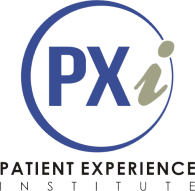Abstract
Redesigning primary care is a national priority, as the United States (US) struggles with issues of poor access, high cost, and suboptimal quality. Refugees are among the populations who suffer from America’s disjointed health care system, resulting in disproportionate health disparities. Although there are many studies on refugee health, few share refugees' perceptions of primary care. We asked local refugees who were seen for primary care services at a midwestern academic nurse-led clinic, what makes a good doctor's visit? The clinic served as the hub of a federally funded refugee Community Centered Health Home (CCHH) pilot project. This qualitative study adds to the growing body of literature that captures the voices of resettled refugees as they reflect on their health care experiences in their new home. The purpose of this study was to elicit the criteria refugees used to evaluate the quality of their care. Individual interviews were conducted with seven refugees as part of the larger CCHH pilot project. Through qualitative thematic analysis, four themes were identified that participants considered aspects of a "good visit": 1. The ability to communicate without language barriers; 2. Open reciprocal dialogue with providers; 3. Provider professionalism; and 4. Accurate diagnosis and treatment. We offer recommendations to improve patient experience in the refugee population which may lead to better health outcomes. Future study is proposed to gain knowledge of how refugee perceptions of quality of care may change over time as they become more familiar with US health care system.
Experience Framework
This article is associated with the Patient, Family & Community Engagement lens of The Beryl Institute Experience Framework. (http://bit.ly/ExperienceFramework)
- Access other PXJ articles related to this lens.
- Access other resources related to this lens.
Recommended Citation
Mutitu A, Zabler B, Holt JM. Refugees' perceptions of primary care: What makes a good doctor's visit?. Patient Experience Journal. 2019; 6(3):33-41. doi: 10.35680/2372-0247.1382.
Creative Commons License

This work is licensed under a Creative Commons Attribution-Noncommercial-No Derivative Works 4.0 License.
Included in
Health and Medical Administration Commons, Health Policy Commons, Health Services Administration Commons, Health Services Research Commons, Other Nursing Commons, Primary Care Commons


